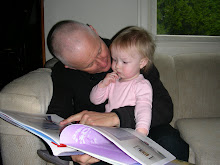September 24, 2008
President Bush's Address to the Nation
The government's top economic experts warn that without immediate action by Congress, America could slip into a financial panic, and a distressing scenario would unfold:
More banks could fail, including some in your community. The stock market would drop even more, which would reduce the value of your retirement account. The value of your home could plummet. Foreclosures would rise dramatically. And if you own a business or a farm, you would find it harder and more expensive to get credit. More businesses would close their doors, and millions of Americans could lose their jobs. Even if you have good credit history, it would be more difficult for you to get the loans you need to buy a car or send your children to college. And ultimately, our country could experience a long and painful recession.
It is a familiar tactic. You can hear it in his voice and feel it creeping up your spine if you pay attention. It is the age-old device, using fear to motivate people to take action you believe is necessary. Fear may work when you are unprotected facing a threatening grizzly bear miles from civilization. But, when we make our choices from a fearful place, we seldom make the best decisions. And, when we use fear to motivate others, there is always a price to pay.
Fear is not a good motivator to generate well-being within the human commiunity.
The problem with fear is that, when we are fearful, we become tense; our heart races; we brace against the undesirable outcome predicted. Operating from this fearful, anxious, braced position disconnects us from the open, expansive gentleness within ourselves that is the place where we can receive wisdom and light. We choke the voice of God when we take an oppositional stance to the realities of life.
Jesus did not have much patience with fear. Over and over, he said, "Do not be afraid." In the Coleman Barks translation of Rumi, the great Persian poet directs us simply to "Move outside the tangle of fear-thinking." Fear always creates a tangle, a mix of motives and a paralyzing sense of anxiety. It is hard to see clearly when our vision is clouded by fear.
Fear does not create a life-giving envrionment for anyone. Fear feeds upon fear, creating more fear. When we act from fear, it is not long before we resort to violence in a futile attempt to gain control of our situation. As soon as we believe we have managed to get one part of life under control, something goes wrong and we are plunged back into a new fear. Terrorism from abroad is followed quickly by economic crisis at home. Some new fear is always close at hand.
Fear arises from the illusion that someone or something has the power to take from us that which we cannot afford to let go. Pema Chodron says, "When we feel inadequate and unworthy, we horad things. We are so afraid - afraid of losing, afraid of feeling even more poverty-stricken than we do already."
But Jesus suggests that "Blessed are you who are poor for yours is the kingdom of heaven." (Luke 6:20)It is in the experience of loss that we begin to discover how much we can do without and open ourselves to the possibility of true riches.
It is ironic that we think things can make us wealthy. Jesus said, "Truly I tell you, it will be hard for a rich person to enter the kingdom of heaven." (Matthew 19:23) When we are rich it is tempting to fall prey to the illusion that our things, our possessions, our talents are the source of satisfaction in life. But no secure sense of well-being resides in anything external to ourselves.
As the present economic panic in North America demonstrates, there is nothing outside of ourselves that we can rely upon as an unfailing source of security, peace or contentment. If we cannot find an inner security that exists independent of external circumstance, we will never experience any true and lasting security.
Most Sundays in church I end the service by saying, "The peace of God which passes all understanding keep your hearts and minds in the knowledge and love of God, and of his Son Jesus Christ our Lord." The Gospel promises a peace "which passes all understanding." This is a peace that does not rely upon stock market portfolios, insurance plans, economic stability or massive military build up. A peace "which passes all understanding," is a peace that comes from knowing "in your hearts and minds, the knowledge and love of God."
Kabir Helminski says, "To be spiritually mature is to be free of the fear of loss, knowing that we are connected to the Source of all generosity." We
are connected to the "Source of all generosity." Therefore, we have nothing to fear. We can be "free of the fear of loss." No matter what may be taken from us, there is nothing and no one that can separate us from the one thing for which our hearts most truly and deeply long. Paul asks
Who will separate us from the love of Christ? Will hardship, or distress, or persecution, or faminine, or nakedness, or peril, or sword?
Paul answers his own question with absolute conviction and unwavering faith.
No, in all these things we are more than conquerors through him who loved us. For I am convinced that neither death, nor life, nor angels, nor rulers, nor things present, nor things to come, nor powers, nor height, nor depth, nor anything else in all creation, will be able to separte us from the love of God in Christ Jesus our Lord.
(Romans 8:35-39)
Freedom from fear comes from the knowledge that nothing can separate us from that inner stream of light and life that is the presence of God known to us in Christ Jesus.


No comments:
Post a Comment